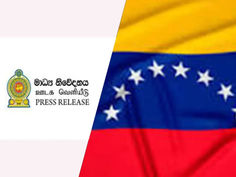The Role of Women in Peacebuilding: Stories from Conflict Zones
- Rahmani Khoshnaw

- Apr 30, 2025
- 2 min read
Khoshnaw Rahmani, JadeTimes Staff
K. Rahmani is a Jadetimes news reporter covering Politics.

Throughout history, women have played crucial roles in peacebuilding, often acting as mediators, negotiators, and community leaders in conflict-affected regions. Despite their contributions, their involvement in formal peace processes has frequently been overlooked. This article explores real-life stories of women in conflict zones who have shaped reconciliation efforts and examines their impact on creating lasting peace.
Women as Agents of Conflict Resolution
Women in conflict zones take on various active roles in peacebuilding, including:
Grassroots Mediation – Women-led local initiatives focus on rebuilding trust among divided communities.
Diplomatic Negotiations – Female negotiators contribute to high-level peace agreements, ensuring inclusive policies.
Humanitarian Aid Coordination – Women-led organizations provide essential healthcare, education, and refugee support during crises.
In regions such as Colombia, Rwanda, and Afghanistan, women have successfully reconstructed societies and fostered reconciliation, despite facing significant challenges.
Women Leading Peace Efforts
1. The Women of Liberia’s Mass Action for Peace
During Liberia’s civil war, Leymah Gbowee and thousands of women organized peaceful protests and nonviolent movements, forcing political leaders into negotiations. Their relentless advocacy resulted in the 2003 peace agreement, ending years of conflict.
2. Afghan Women’s Role in Peace Talks
Despite socio-political constraints, Afghan women have persistently fought for inclusion in negotiations with the Taliban. Their participation ensures discussions prioritize human rights, education, and security for women and children.
3. Rwandan Women Rebuilding Post-Genocide
Following the 1994 Rwandan Genocide, women played a pivotal role in reconciliation programs, community healing, and economic rebuilding. Their involvement led to Rwanda achieving one of the highest percentages of female representation in government globally.
Challenges & Barriers to Women’s Inclusion in Peacebuilding
Although women contribute significantly to peacebuilding, systemic barriers hinder their full participation:
Lack of Representation – Women remain underrepresented in formal peace negotiations, making up less than 10% of global peace mediators.
Security Threats & Social Constraints – Women peacebuilders often face violence, discrimination, and restricted access to decision-making processes.
Limited Funding for Women-Led Initiatives – Many grassroots women’s organizations struggle with inadequate financial support.
Strengthening Women's Role in Peace Efforts
To enhance women’s contributions to global peacebuilding, governments and institutions can adopt:
Inclusive Policy Frameworks – Ensuring women hold decision-making positions in negotiation and reconstruction efforts.
Global Support Networks – Strengthening international coalitions for women-led peacebuilding movements.
Education & Leadership Programs – Investing in women’s leadership training and diplomatic participation.
Women’s contributions to peacebuilding in conflict zones have reshaped political landscapes, rebuilt communities, and established lasting reconciliation. Despite facing challenges, their unwavering leadership continues to transform societies. As global conflicts persist, ensuring women’s full participation in peace processes is not just beneficial—it is essential to sustainable peace.











































Comments